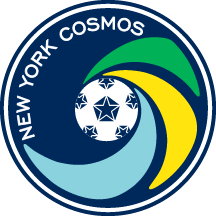News
Shep Messing named on the National Soccer Hall of Fame ballot

Former New York Cosmos goalkeeper Shep Messing has been named a candidate on the National Soccer Hall of Fame veterans ballot for 2020.
He was among 12 former players listed on the ballot.
Messing performed with the Cosmos during three tenures, from 1973-74 and 1976-77 and with their indoor squad in 1984. As a teammate of the great Pele, Franz Beckenbauer, Carlos Alberto and Giorgio Chinaglia, he backstopped the club to the 1977 North American Soccer League championship. The Cosmos defeated the Seattle Sounders in Portland, Ore., 2-1, on a goal by Chinaglia.
"For me it would be perhaps the greatest honor that I ever had in sports, next to winning the championship for Pele in the final game," said Messing, referring to Pele's final game in the 1977 Soccer Bowl. "But I do want to mention the Coronavirus and what's going on today. It's pretty hard to even think or give a quote about a possible induction into the Hall of Fame. This is kind of a reset for the whole world. I care much more about this being done and lives being saved than any Hall of Fame."
After playing for the Cosmos, Messing completed his outdoor career with the Oakland Stompers in 1978 and then the Rochester Lancers in 1979.
During that juncture, he became the first player to be signed by the Major Indoor Soccer League's New York Arrows and helped the team to four consecutive indoor titles from 1979-1982. He left the Arrows in 1984, joining the indoor Cosmos and then the Pittsburgh Spirit, who both competed in the MISL. Messing was the president and goalkeeper of the New York Express in the MISL in 1986-87.
Born in the Bronx, Messing learned his soccer at Wheatley High School in Roslyn, N.Y. on Long Island before attending New York University, Nassau Community College and Harvard University. He twice earned second-team All-American honors at Harvard. He also played in the net for the U.S. men's Olympic team at the 1972 Olympics.
Now 70, Messing is best known to soccer fans in the tri-state area as the analyst on New York Red Bulls telecasts for the past two decades.
Messing said he felt many American soccer players have missed out on getting inducted into the National Hall of Fame.
"The only other thing I would like to add, and I speak not on behalf of myself, but others from the NASL and in particular the MISL, who I think have been overlooked," he said. "I think that's part of having a selective memory. Soccer in this country didn't start with Major League Soccer. I can list names of players like Bob Rigby, the first one on the cover of Sports Illustrated, Alan Mayer. They've been forgotten in part because of such an array of foreign stars that came in. Look, were they great players, world class players? Absolutely. I look at a Hall of Fame, as it should be our National Hall of Fame, it should recognize players that maybe changed the face or made a major contribution to the sport in the country."
Messing was joined on the veterans ballot by one-time Arrows teammate Steve Zungul, former U.S. national men's national team players Chris Armas, now the Red Bulls head coach, John Doyle, Chris Henderson, Frank Klopas, Taylor Twellman and Steve Vanney, ex-U.S. women's internationals Mary Harvey, Tiffany Roberts and Tish Venturini-Hoch and former Bolivian national team midfielder Marco Etcheverry.
Voting began on March 18.
To be eligible for election as a veteran, an individual must be a retired player for more than 10 full calendar years and have either: 1) Played in at least 20 full international games for the U.S.; if played prior to 1990, the game requirement is reduced to 10 games, or 2) Played at least five seasons in an American first-division professional league and named to a postseason league all-star team at least once, or 3) Played at least five seasons in the MISL between 1984-1992 and been named a postseason league all-star at least once.
The veteran ballot is voted on by current Hall of Famers, who can select up to five candidates. The top vote-getter will be elected as long as he or she appears on a minimum of 50 percent of the ballots. If no individual appears on 50 percent of the ballots, then no veteran will be elected to the 2020 Class. More than one candidate may be elected in the event of a tie.


